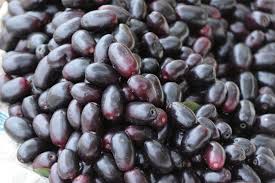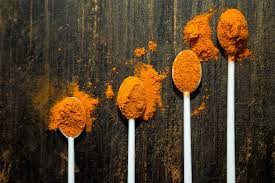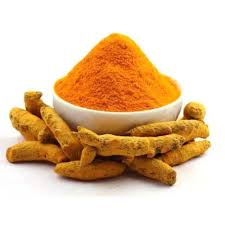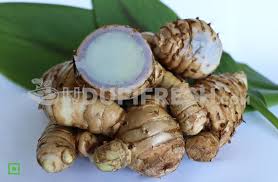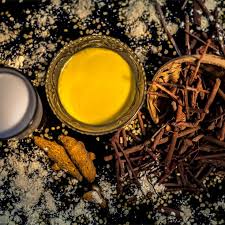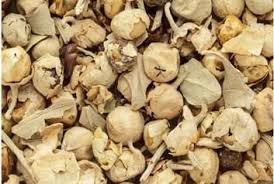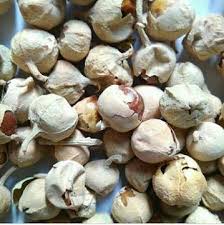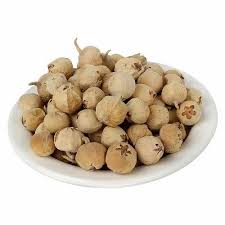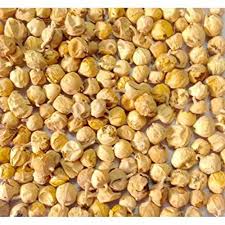
Best Herbal Remedies for Monsoon Season – Featuring Paneer Phool
The monsoon season brings much-needed relief from the scorching heat of summer, but it also comes with its own set of health challenges. From digestive issues and low immunity to skin infections and joint pain, the humid and damp weather affects the body’s natural balance. Ayurveda emphasizes that monsoon aggravates the Vata and Kapha doshas, making the body more prone to seasonal ailments.
To stay healthy and balanced during this season, many turn to herbal remedies that are natural, effective, and time-tested. Among them, Paneer Phool (Withania coagulans) stands out as a versatile herb for boosting immunity, improving digestion, and maintaining energy levels. At Dirghaanshi, we explore how Paneer Phool, along with other Ayurvedic herbs, can help you stay healthy, energized, and protected during the monsoon.
This comprehensive guide will walk you through the best herbal remedies for monsoon, with special focus on Paneer Phool’s benefits, uses, and Ayurvedic importance.
Long Description
Why Do We Need Herbal Remedies in Monsoon?
The high humidity and temperature variations during monsoon season disrupt the body’s internal functions. According to Ayurveda, this weather increases Vata and Kapha, resulting in:
Indigestion and bloating
Water retention and sluggish metabolism
Cold, cough, and respiratory issues
Joint stiffness and body pain
Weak immunity
Herbal remedies help bring the body back into balance by strengthening digestion (Agni), purifying the blood, and boosting immunity naturally.
Top Herbal Remedies for Monsoon Season
Below are some of the best Ayurvedic herbs for monsoon wellness, featuring Paneer Phool at the top of the list:
- Paneer Phool (Withania coagulans) – The Star Herb for Monsoon
Properties: Cooling, anti-inflammatory, antidiabetic, and adaptogenic
Benefits in Monsoon:
Improves digestion and metabolism, which tend to slow down due to humidity
Reduces bloating, gas, and water retention
Boosts immunity to fight off bacterial and viral infections
Cleanses the liver and kidneys, reducing toxin accumulation
Helps manage blood sugar levels, which may fluctuate due to seasonal stress
Prevents skin eruptions and boils caused by trapped heat
How to Use:
Soak 7–10 Paneer Phool in water overnight
Drink the strained water in the morning on an empty stomach
Can be consumed 3–4 times a week during monsoon
- Tulsi (Holy Basil)
Properties: Antiviral, antibacterial, and expectorant
Benefits:
Clears respiratory passages
Prevents monsoon coughs, colds, and sinus congestion
Builds immunity and purifies blood
Use: Drink Tulsi-infused herbal tea daily
- Giloy (Guduchi)
Properties: Immunomodulator, detoxifier, antipyretic
Benefits:
Boosts natural immunity
Prevents seasonal fevers and infections
Balances all three doshas—especially effective during monsoon
Use: Mix Giloy powder or juice with water and consume daily
- Amla (Indian Gooseberry)
Properties: Rich in Vitamin C, antioxidant, rejuvenator
Benefits:
Strengthens the digestive system
Enhances skin glow and protects against fungal infections
Maintains healthy gut flora
Use: Mix Amla juice with honey or add powder to herbal infusions
- Methi (Fenugreek)
Properties: Anti-inflammatory, antimicrobial
Benefits:
Controls bloating and water retention
Reduces inflammation in joints
Aids in controlling blood sugar
Use: Soak methi seeds overnight and chew in the morning
- Triphala (Amla + Haritaki + Bibhitaki)
Properties: Mild laxative, detoxifying, rejuvenating
Benefits:
Prevents constipation and supports digestion
Cleanses the liver and colon
Enhances immunity and metabolism
Use: Take Triphala powder with warm water before bedtime
Paneer Phool as a Monsoon Super Herb
Paneer Phool offers dual-action benefits in monsoon by:
Detoxifying the body
Strengthening internal systems
Unlike synthetic remedies, Paneer Phool:
Does not cause side effects
Supports long-term wellness
Is safe for regular use in adults when taken in moderation
How Paneer Phool Helps With Specific Monsoon Issues:
Health Issue How Paneer Phool Helps
Weak digestion Strengthens Agni and reduces acidity
Water retention Acts as a diuretic to reduce bloating
Frequent colds Boosts immunity and supports lung health
Skin eruptions Purifies blood and reduces internal heat
Tiredness and weakness Increases energy and metabolism
How to Make Monsoon Herbal Tea Featuring Paneer Phool
Ingredients:
5–7 dried Paneer Phool
4–5 Tulsi leaves
1 small piece of dry ginger
½ tsp fennel seeds
1.5 cups water
Method:
Boil all ingredients together for 7–8 minutes
Strain and sip warm, once daily
Benefits:
Boosts digestion, prevents cold, strengthens immunity, and detoxifies organs
Dietary Tips with Herbal Remedies During Monsoon
Eat warm, freshly cooked meals
Avoid fermented, cold, and fried foods
Sip herbal teas instead of sugary beverages
Use herbs like Paneer Phool, Amla, and Tulsi in your daily routine
Reduce dairy and heavy grains that aggravate Kapha
Lifestyle Tips for Monsoon Wellness
Practice oil massage with warm sesame oil to relieve joint pain
Do light yoga or breathing exercises to prevent stiffness
Bathe with neem or vetiver-infused water for skin health
Avoid getting wet in the rain to reduce risk of fever and cough
Use natural mosquito repellents like Tulsi and lemongrass oil
Precautions While Using Paneer Phool
Always use dried, clean, and unadulterated Paneer Phool
Consult a healthcare provider if pregnant or diabetic
Avoid overdose—7 to 10 flowers/day are sufficient
Discontinue if any allergy or discomfort appears
Frequently Asked Questions (FAQs)
Q1: Can Paneer Phool be consumed daily during monsoon?
A: Yes, it can be consumed 3–5 times per week for best results, especially in the morning.
Q2: Is it safe for children?
A: It is best used in small doses or under Ayurvedic supervision for children.
Q3: How soon can I see benefits?
A: Most users see improved digestion and energy within 1–2 weeks of regular use.
Conclusion
The monsoon season may bring beauty to the environment, but it also disrupts our inner balance. The key to staying well lies in following a preventive, natural, and time-tested approach. Herbal remedies like Paneer Phool, Tulsi, Giloy, and Amla offer exactly that—a holistic way to fight seasonal challenges while enhancing overall health.
With its cooling, detoxifying, and immunity-boosting properties, Paneer Phool earns a special place among monsoon herbs. Incorporating it into your daily routine through teas, infusions, or water soaks can significantly improve your digestion, skin health, energy levels, and resistance to infections.
At Dirghaanshi, we continue to share the wisdom of Jadi Buti and Ayurvedic traditions to help you experience natural healing in every season. Embrace the power of nature and let herbs like Paneer Phool guide you toward better health this monsoon.



